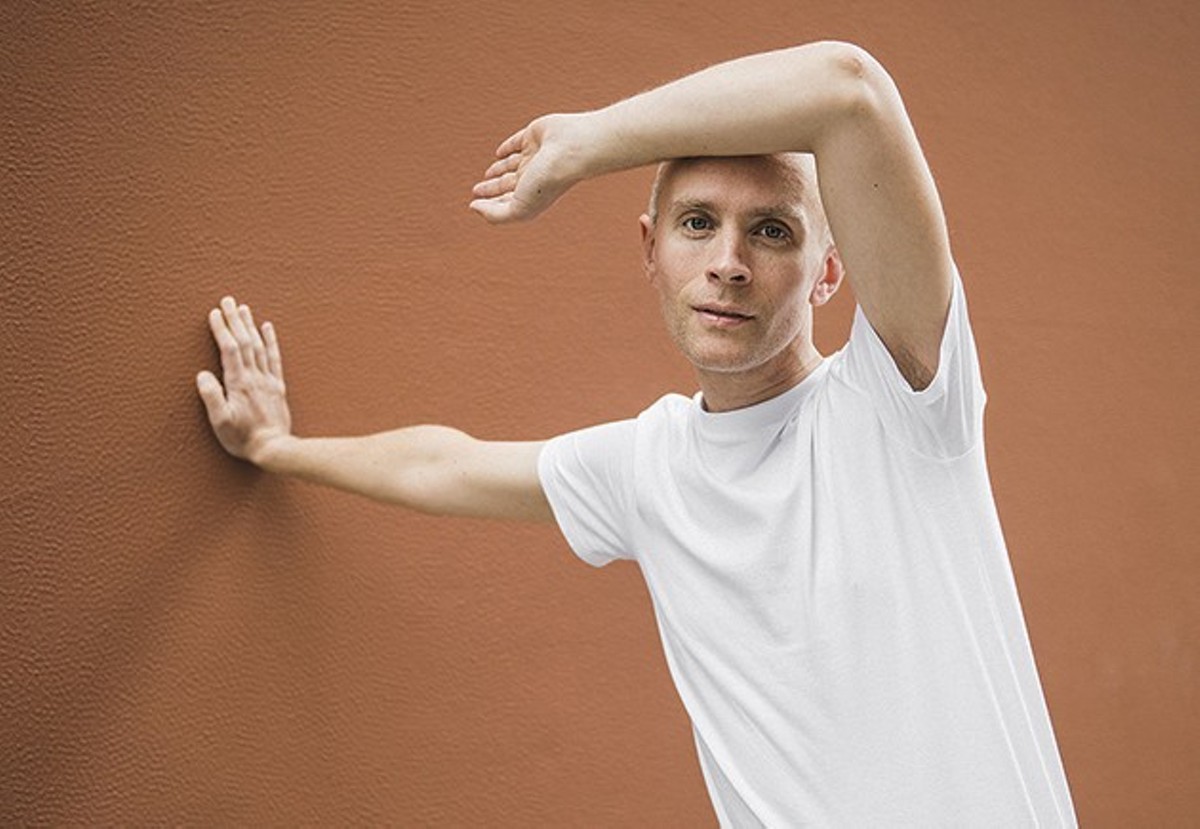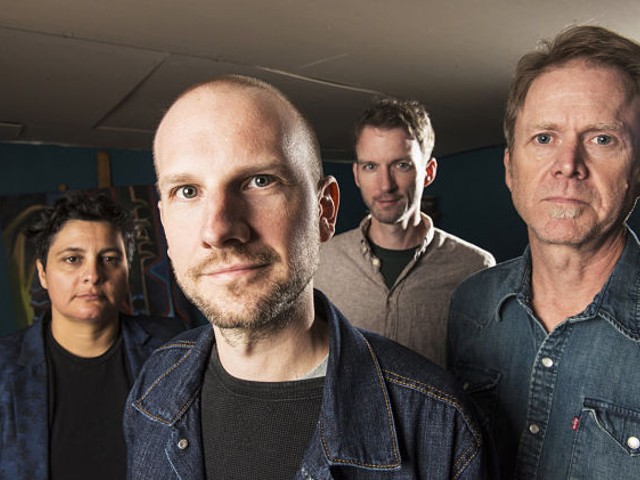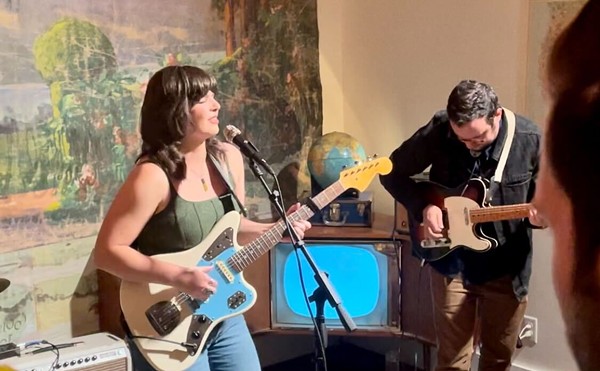The paradox behind most DIY pop is straightforward: A young artist endeavors to emulate the advanced studio genius of Phil Spector or Brian Wilson or Paul McCartney, and does so with a bunch of Radio Shack microphones in a bedroom or a basement or a closet. Most often, the go-it-alone sonic fantasies wind up charming but stand no chance of connecting with an audience that is not the aspiring auteur's cats.
Jens Lekman, a 37-year-old Swedish songwriter and home producer, has rewritten the paradox with a sequence of homemade, low-budget recordings that never sound coy or lo-fi or pretentious, even when spinning up hyper-sampled parables of a blind girl and a boy suffering from craniodiaphyseal dysplasia (inspired by a film by Peter Bogdanovich), a near-death experience in a closing-time cab or a misheard expression of unrequited love. "Rocky Dennis' Farwell Song," "Black Cab" and "Maple Leaves," singles written, recorded and largely performed by Lekman in the early 2000s and released on the vaunted Secretly Canadian label, still sound magical, still have the power to create timeless, utterly personal sonic worlds, just as Pet Sounds or "Da Doo Ron Ron" did (and still do).
With the exception of a few years in Melbourne, Lekman has spent most of his life in his native Gothenburg, Sweden, though at times he didn't have a home in the city, preferring to store his stuff at his parents' house. His elaborately orchestrated and sampled songs are populated by the outsiders of his city, the dreamers and fabulists who feel forever homeless even when they're in the only home they'll ever know.
"Every country has a Stockholm and a Gothenburg," Lekman says on the phone from the latter. "They are archenemies, opposites, like London and Manchester, Melbourne and Sydney. One is the flashy façade of the country, where you go as a tourist, and the other place is working class, with more industry. That was Gothenburg when I grew up. It was known for the Volvo factory, industrial landscapes, the harbor. It was the place where people worked. There wasn't a lot of music or culture coming in."
Lekman's intricately looped, lilting homages to the city and its poetic underbelly have chronicled the changes that have befallen any number of cities targeted by raider capitalism. When his characters head to the outskirts of town to hotwire a ferris wheel, they do so as a last stand for economic and creative hopes that are slipping away.
"So much has changed in the last fifteen years," he says of his hometown. "It's become a more cool place. There was a beauty in the old Gothenburg. It's an interesting political and economic story. It's fascinating but also sad. A lot of things have been lost. There's a pursuit of fast money, rather than investing in the city. Right now they're demolishing rehearsal spaces for musicians to build a skyscraper with luxury flats. I don't have a place to work right now. I can't pay the rent."
It would be wrong to say that Lekman clings to his cult status, though he relishes the intimacy it gives him with his small fan base. He lets slip the occasional EP and single, and paces full-length albums at about one every five years. In 2012 he had grand hopes for his most accomplished and personal recording, I Know What Love Isn't; to understate matters, the album underperformed, and the artist drove boxes of unsold copies to a landfill. eBay didn't seem worth the trouble. And yet those songs, all of his songs, have a luster that outshines their relative obscurity.
"I remember making the song 'Maple Leaves' one morning in 2000 or 2001," he says of that early, creative breakthrough. "I set my alarm for 7 a.m. because my voice is dark in the morning, and I wanted that sound. Instead of singing, I worked on these samples and loops. I was done with it before lunch. I struggled to find that sound but I was happy with it. There's that feeling when something comes together and you don't know where it comes from. You listen and think, 'This sounds amazing.' But I am going to go to sleep now, and probably it will sound like shit in the morning. And then you wake up and it sounds even better. 'My God, did I do that?' I've had a few of those moments."
For last year's Life Will See You Now, his first album after the failure of I Know What Love Isn't, Lekman did the last thing he ever imagined doing: He surrendered his songs to a producer and abandoned his home studio for a state of the art joint. Working with electronic producer and DJ Ewan Pearson, known for programming and remixes of the likes of the Depeche Mode, the Rapture and Gwen Stefani, Lekman finally found the eclectic yet danceable sound he hoped for.
"I picked Ewan because of his work with Tracey Thorn," Lekman reflects. "She also came from a songwriter background and then moved into a dancy direction with Everything But the Girl. He found a good middle ground for her. I've always loved music that's somewhere in between dance music and songwriter music, where it feels someone is writing the song on a piano or guitar, and then there's the beats under it."
Life Will See You Now could have been a disaster, just another failed attempt by Lekman to be something he'll never be: a pop star made in someone else's image.
"It was one of the most frustrating experiences in my life," he says of making the album. "I hate letting go of control. I've tried to work with producers in the past; they were failures that I had to abandon. But this time I just let go completely. And that was the key. But I couldn't always hear what Ewan was hearing. We spent a lot of time recording a session bassist playing all these funky licks. I thought, 'Why are we wasting our time?' Then he sent me a mix where he edited things together. And I heard it. I'd never worked in a studio before. It was terrifying."
Lekman has toured the states from time to time, but he's never tapped into smaller markets like St. Louis. This week marks his first show in the city; he'll be performing solo at Off Broadway, but fans of his beautiful bedroom pop need not worry. This will be more than a stripped-down acoustic night.
"It starts out as a storytelling evening," he says, "but then I have a sampler with me, and it becomes a full-on dance party at the end. So bring your finest dancing shoes."






